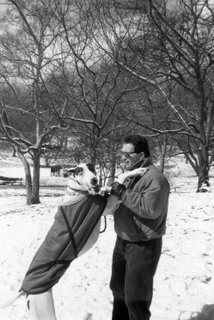Beginning a "social work" blog...why?
While I have truly enjoyed reading the many blogs out in the web universe, I was surprised at how few came from social workers. Many talented artists and insightful free thinkers have their blogs, but there are so few blogs coming from a profession that focuses on social change, empowerment of people, principles of human rights, and problem solving in human relationships and their environment. Maybe, we social workers, are so busy doing this life altering work, that doing a blog at the end of a day is just too much!
I invite any and every person to share or respond to my blog, but I also hope to reach the many hard working social workers and care professionals out there. Our work is about giving back in a world that has often forgotten how to. As professional caregivers and healers, we must allow self care to come into place as well...otherwise, that awful word, "burnout" comes into the picture. Sharing our stories, and hearing recognition of their importance, can be a form of self care. We see so many needy people in a day, and it can be easy to lose track and not honor our reactions and feelings to the pain and suffering we often witness and encounter. Equally significant, and often more rewarding, is sharing the lessons and insights we find in our encounters and exchanges.
This blog invites others to share their inspirations, feelings, thoughts, and beliefs. We all have inspired musings which should be shared. I believe the most beautiful gifts we receive in life are from the experiences shared with others. When those "others" are disenfranchised, vulnerable, or at risk we are opened to learning and hearing at a deeper level.
My blog will be a mix of stories, experiences, feelings, and characters that I have encountered in my social work. I also hope to reflect on what all this may mean in my personal life. I reach out to others to respond and give me stimulating feedback. I end my first blog entry with a favorite quote:
"What we do for ourselves dies with us. What we do for others remains and is immortal."
-Albert Pike-
 Receiving a call from an old friend;
Receiving a call from an old friend;






